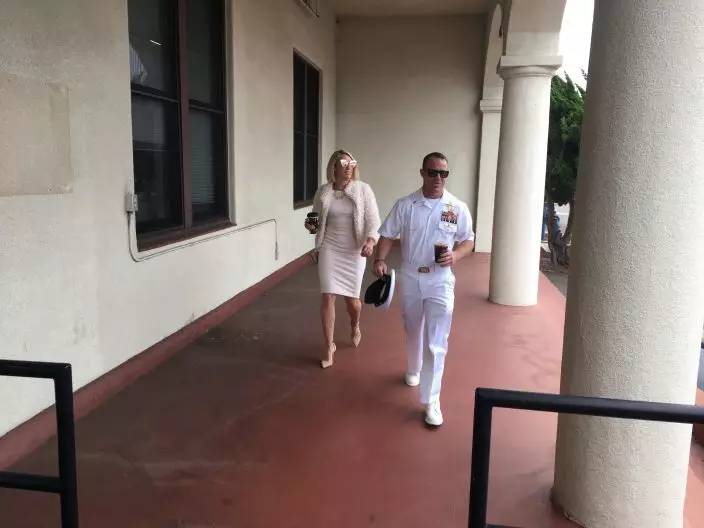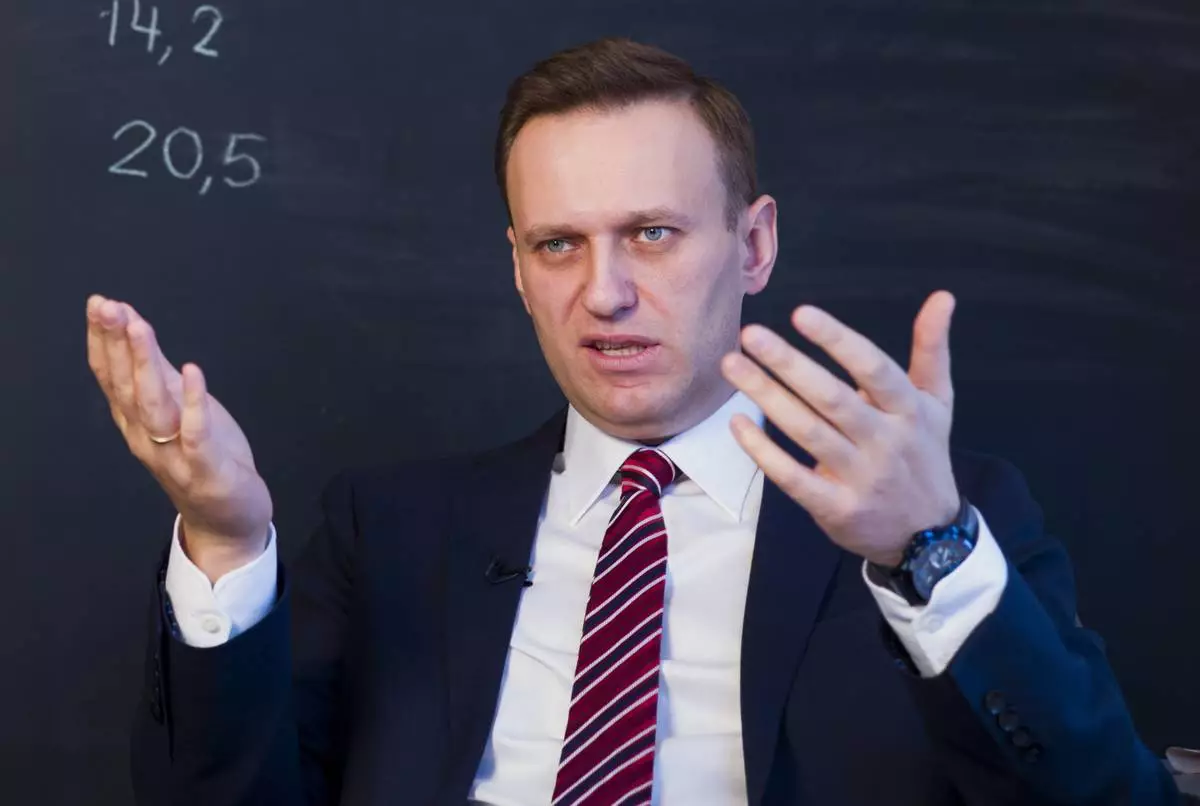A pathologist has testified at a Navy SEAL's murder trial that a wounded Islamic State militant could have died from a stabbing described by other witnesses.
Dr. Frank Sheridan on Monday declined to offer a cause of death because information was lacking.
Special Operations Chief Edward Gallagher is charged with fatally stabbing the young prisoner in Iraq and has pleaded not guilty.

Navy Special Operations Chief Edward Gallagher, right, walks with his wife, Andrea Gallagher as they arrive to military court on Naval Base San Diego, Monday, June 24, 2019, in San Diego. Trial continues in the court-martial of the decorated Navy SEAL, who is accused of stabbing to death a wounded teenage Islamic State prisoner and wounding two civilians in Iraq in 2017. He has pleaded not guilty to murder and attempted murder, charges that carry a potential life sentence. (AP PhotoJulie Watson)
Two fellow SEALs say Gallagher stabbed the militant after treating his injuries from an airstrike.
A medic stunned the court last week by confessing to killing the victim by plugging his breathing tube. Corey Scott says the boy would've survived the stabbing if he hadn't killed him.
Sheridan based his testimony on other witnesses and video of the patient before the stabbing.
WASHINGTON (AP) — U.S. intelligence officials have determined that Russian President Vladimir Putin likely didn’t order the death of imprisoned opposition leader Alexei Navalny in February, according to an official familiar with the determination.
While U.S. officials believe Putin was ultimately responsible for the death of Navalny, who endured brutal conditions during his confinement, the intelligence community has found “no smoking gun” that Putin was aware of the timing of Navalny's death — which came soon before the Russian president's reelection — or directly ordered it, according to the official.
The official spoke on the condition of anonymity to discuss the sensitive matter.
Soon after Navalny’s death, U.S. President Joe Biden said Putin was ultimately responsible but did not accuse the Russian president of directly ordering it.
At the time, Biden said the U.S. did not know exactly what had happened to Navalny but that “there is no doubt” that his death “was the consequence of something that Putin and his thugs did.”
Navalny, 47, Russia’s best-known opposition politician and Putin’s most persistent foe, died Feb. 16 in a remote penal colony above the Arctic Circle while serving a 19-year sentence on extremism charges that he rejected as politically motivated.
He had been behind bars since January 2021 after returning to Russia from Germany, where he had been recovering from nerve-agent poisoning that he blamed on the Kremlin.
Russian officials have said only that Navalny died of natural causes and have vehemently denied involvement both in the poisoning and in his death.
In March, a month after Navalny’s death, Putin won a landslide reelection for a fifth term, an outcome that was never in doubt.
The Wall Street Journal first reported about the U.S. intelligence determination.

FILE - Russian opposition politician Alexei Navalny gestures while speaking during his interview to the Associated Press in Moscow, Russia on Dec. 18, 2017. U.S. intelligence officials have determined that Russian President Vladimir Putin likely didn't order the death of Navalny, the imprisoned opposition leader, in February of 2024. An official says the U.S. intelligence community has found "no smoking gun" that Putin was aware of the timing of Navalny's death or directly ordered it. (AP Photo/Alexander Zemlianichenko, File)











